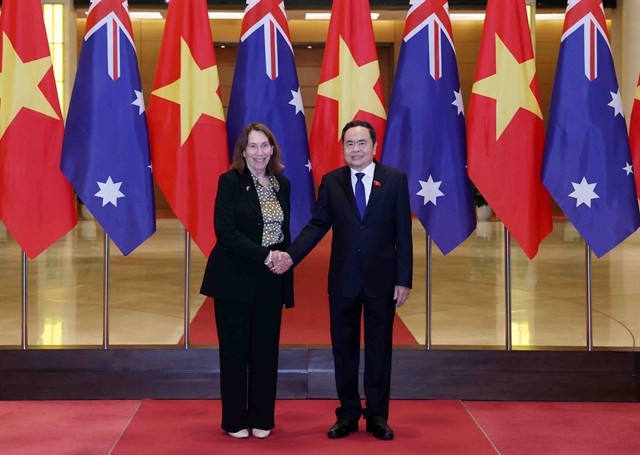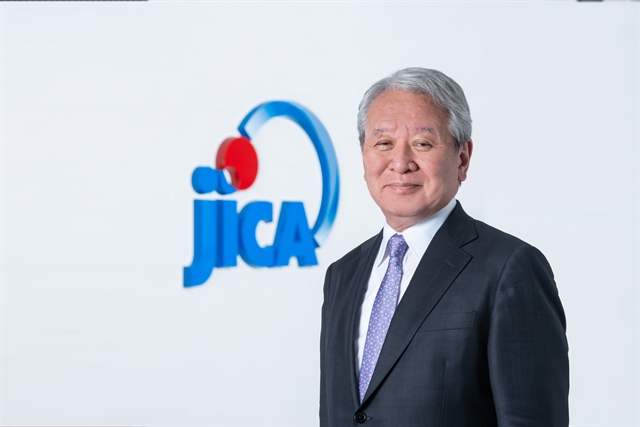 Politics & Law
Politics & Law

 |
| JICA President Tanaka Akihiko.— Photo courtesy of JICA Việt Nam |
Tanaka Akihiko*
October 6, 2024 is a significant milestone for Japan, marking 70 years since its commencement of Official Development Assistance (ODA) in 1954.
Over these seven decades, as a major global partner, Japan has extended its cooperation programmes to 190 countries and regions, contributing to their economic and social development as well as peace and prosperity in the global community.
Japan’s international cooperation efforts began, in parallel with the payment of post-war reparation to Asian states, with the aim to rebuild trust within the international community.
Starting with providing technical training programmes to Asian states and expanding its cooperation programmes, Japan has become one of the leading bilateral development partners in the world.
The Japan International Cooperation Agency, JICA, is responsible for administrating Japan’s ODA, offering a wide variety of cooperation programmes, including finance and investment cooperation, technical cooperation, and other services, including emergency aid and the dispatch of volunteers.
In synergy with the domestic initiatives of recipient countries, JICA’s cooperation programmes, such as those for infrastructure development and human resources development, have laid a solid foundation for their development.
In Thailand, for example, eastern seaboard development facilitated by Japan’s yen loans and technical cooperation in 1980s attracted the automobile industry to Thailand, which in turn has fostered manufacturing and trade throughout the region.
Another prominent example is JICA’s agricultural cooperation, by which rice production in African states has been doubled and enhanced food security in the region.
Finally in Việt Nam, Nội Bài International Airport, a gateway of the country, was developed by JICA together with Nhật Tân Bridge and connecting road between the airport and the bridge to enhance the competitiveness of Việt Nam.
It has been the fundamental principle of JICA to respect ownership and self-help efforts of the partner country and to put strong emphasis on unwavering commitments with a long-term vision. JICA highly values people-to-people interactions, bringing strengths together through dialogue, rather than the unilateral transfer of technology and knowledge.
This approach enabled us to offer solutions tailored to local contexts and foster human resources necessary for the sustainable growth of a country. It has also deepened mutual understanding and trust, and thereby strengthened bilateral relations between JICA’s partner countries and Japan.
Despite the significant efforts by the international communities, many global challenges remain unresolved. Rather, issues such as climate change, armed conflict, pandemics, natural disasters, economic crises, and other threats have become more complex and interlinked, leading to the compound crises. A UN report warns that only 17 per cent of the Sustainable Development Goals (SDG) targets are on track to be achieved, with only six years remaining until the target year, 2030. The international community needs to work harder and more closely than ever to overcome these compound crises.
In response to the changing global landscape, the Government of Japan revised its Development Cooperation Charter in June 2023 to update its development cooperation to be implemented in a more effective and strategic manner.
In the revised charter, human security is positioned as the guiding principle that underlies all of Japan’s development cooperation. Human security refers to a state in which people, as individuals, are free from fear and can live with dignity. In the midst of this compounded crises, many people find their human security threatened; critically, vulnerable people in developing countries are the most seriously affected. As the development cooperation agency of Japan, JICA is further committed to ensuring human security by its efforts for poverty reduction through quality growth.
To achieve these goals, JICA is evolving its cooperation programme to engage diverse actors and facilitate collaborative work in development efforts. There are enormous unresolved development issues, and many of them remain without clear solutions.
The complexity of the development challenges requires innovative solutions that emerge from collaborations among the public sector, private sector, academia and other stakeholders. In addition, it is not the exclusive role of developed countries to lead global transformations, as many developing countries have experienced remarkable economic development and start-ups have entered the global market from developing countries.
Given this situation, one of the critical keys to accelerating efforts to address development issues is for ODA to function as a catalyst for collaboration to harness the wisdom and technology of these diverse sectors. ODA is expected to play a crucial role in realising and promoting such co-creation. Building reciprocal relationships through continuous dialogues with partner countries to create solutions is a strong tradition of Japan’s cooperation, and JICA is ready to advance co-creation by leveraging the tradition.
JICA’s vision is “Leading the World with Trust”.
Our development cooperation has been focusing on human security, equal partnerships, and self-ownership by developing countries. We are committed to continued cooperation with developing countries and like-minded development partners. In a world of disruptions, it is important to maintain the values we consider essential, and that we respond to new challenges in a new way together, building on the trust that Japan has built over the years.
*Tanaka Akihiko is JICA President.




